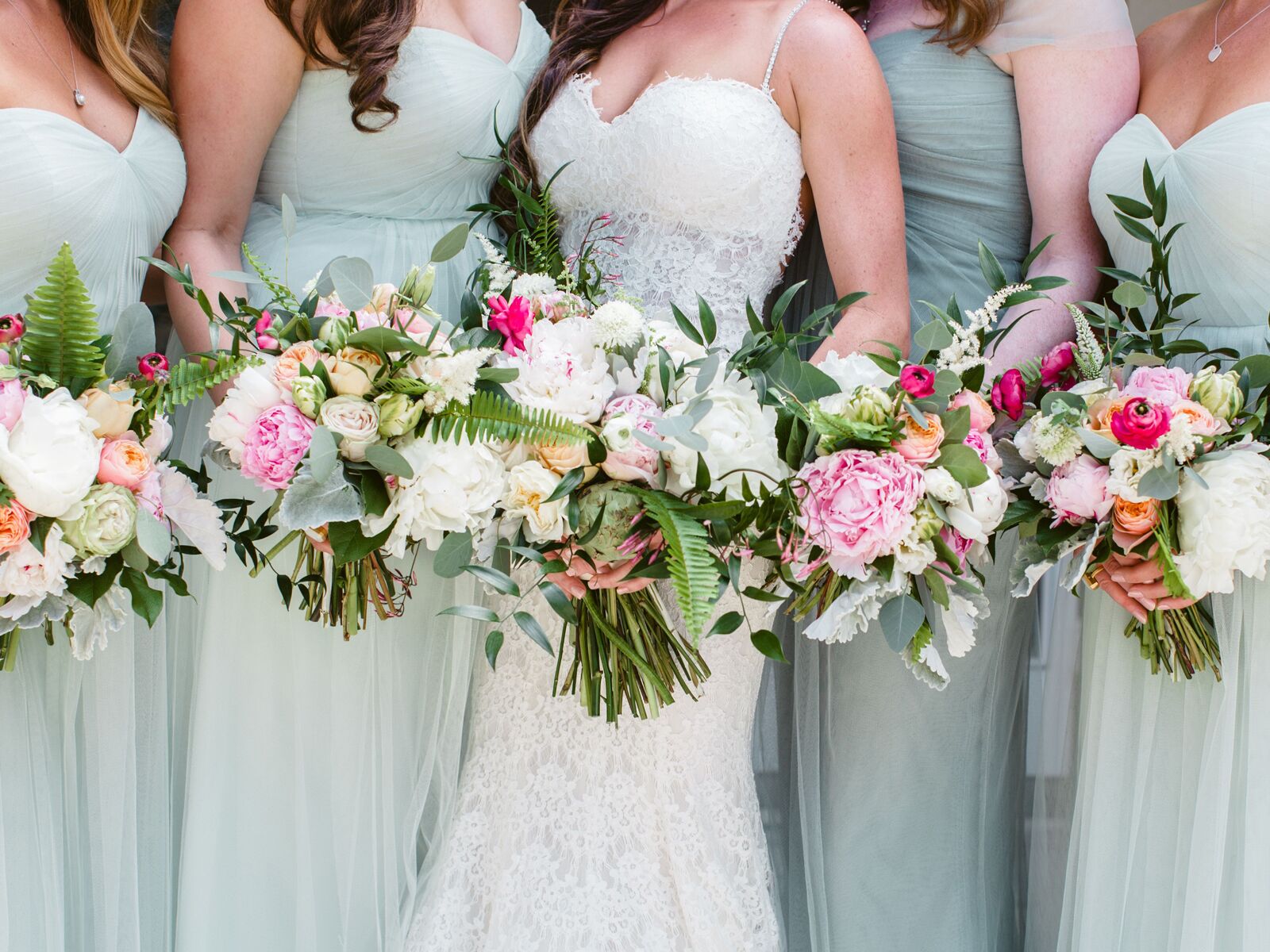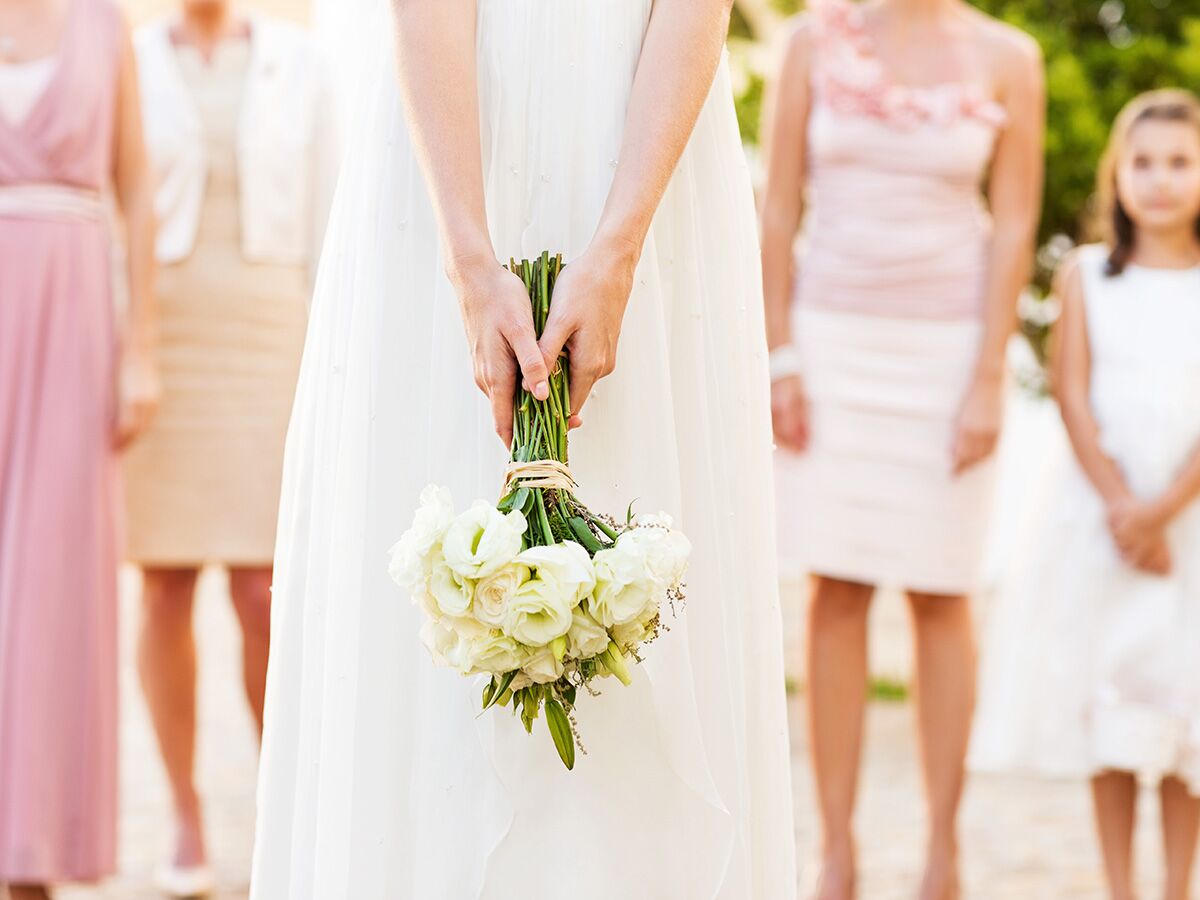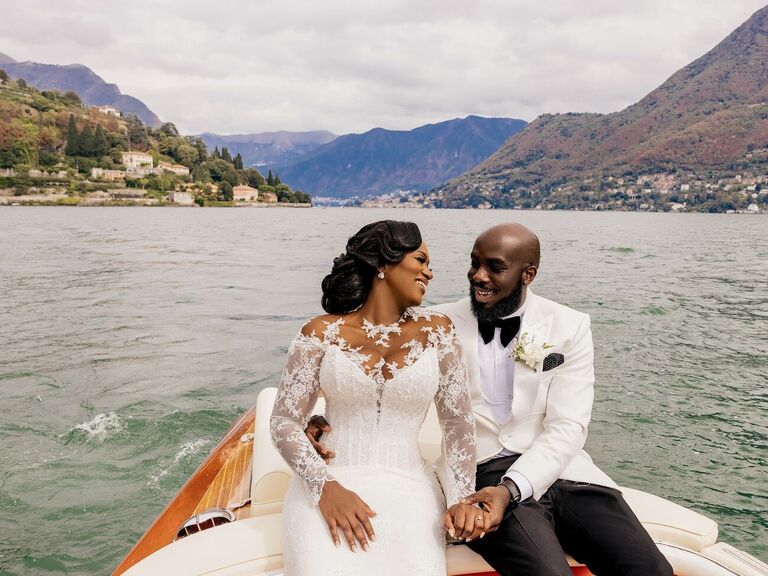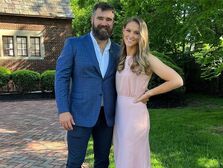So, How Long Does It Actually Take to Plan a Wedding?
One of the questions we're often asked is "how long does it take to plan a wedding?" Here's the thing—there's no right or wrong answer. Depending on the type of wedding you want, you could likely get married next week, or you could wait several years. However, if a fully-planned event is what you're after, that does take some time to put together (check out The Knot's wedding checklist for all the steps). We talked to Elizabeth Gopal, owner and creative director at East Made Co in Maryland, about how long it takes to plan a wedding, and how to start the process. Here's a clue: "Hot take: it does not take two full years to plan a wedding," says Gopal.
In this article:
- When to Start Planning Your Wedding
- How Long Do You Need to Plan a Wedding?
- Is a Long or Short Engagement Right for You?
- How to Start the Wedding Planning Process
When to Start Planning Your Wedding
Yes, you might be tempted to start planning your big day immediately after the proposal (and perhaps you've even done some casual planning before the question was even popped!)—but unless you're working with a super-tight timeline, Gopal recommends waiting a few weeks before jumping into the planning process.
"How long you take really depends on how quickly you're looking to make things official, but it's nice to spend three to four weeks getting used to the 'engaged' title before diving into the logistics of planning," she says. "People will start asking you those decision-based wedding questions immediately but it's great to take a beat and actually feel engaged before jumping in (even if you've already started a Pinterest board pre-engagement)!"
How Long Do You Need to Plan a Wedding?
According to The Knot Real Wedding Study, the average time to plan a wedding is 15 months—but remember that this is just an average, and you can certainly plan your big day in less or more time.
"We have planned events in time spans ranging from three weeks to two years, and so much can depend on the season or location in which you want to hold your wedding," Gopal says. "Where we're based, on the East Coast, our busiest months are May to June and September to October, so a Saturday in June at a popular venue is going to book up a year or more in advance whereas a Friday in November at a lesser-known space might still be available two months prior. Generally, 10 to 14 months seems to be a sweet spot where you won't feel completely rushed but you'll also be able to secure your favorite vendors."
Of course, Gopal (one of our Ones to Watch honorees!) works with couples with a wide range of timelines. "The longest planning time frame we'll typically agree to is 16 to 18 months, and the shortest time frame where our couples can have time to actually process and think through their decisions is three to four months. That said, we planned one of my favorite weddings ever in only three weeks and it turned out beautifully!"
Destination weddings (especially ones that take place abroad) tend to be a bit more complicated to put together than hometown weddings, so we recommend allotting 12 to 16 months to plan if possible. Smaller weddings, with only a few guests, can be planned quicker.
Is a Long or Short Engagement Right for You?
Whether a couple has a long or short engagement is sometimes out of their control, whether it's due to military deployment, work circumstances or family issues. But if you're able to choose whether to have a long or short engagement, it can be a tough decision—there are pros and cons to each!



According to Gopal, the main thing to consider when deciding whether a long or short engagement is right for you is how hands on you'd like to be during the planning process. "Every couple is different; if you are looking for a more hands-off experience where your planner and/or designer takes the lead, you can certainly accomplish all of your planning in a shorter time frame," she says.
For a bit more detail, we've outlined the advantages and disadvantages of a long and short engagement:
Pros and Cons of a Long Engagement
Yes, with a longer engagement you'll have more vendors and options available to you—but that can be both an advantage and a disadvantage, Gopal, who has over 10 years of experience in the wedding industry, explains.
"I think the largest advantage is that you'll have a fuller selection of available venues and vendors, so this is important if you've had your heart set on a certain location or team for a long time," she says. "With a longer engagement, there will be natural lulls in the planning process, which is very normal. But, you may feel more overwhelmed at the endless options and choices there are to make--and you'll have a longer time to sit on those decisions (and more time to change your mind). This is actually why we start our design process at a similar point in time in each planning process—because styles and tastes can really change in a year and a half plus!"
Pros and Cons of a Short Engagement
There's something so romantic about a short engagement (less than six months or so). Though you'll likely have fewer options when it comes to available vendors, you'll have one major advantage—getting married sooner!
"I actually love a shorter engagement personally; our couples are very focused on the larger picture and seem to put added trust in their vendor teams to sift through the minutiae," Gopal says. "There is less decision fatigue, and less time to sit in the details, so the whole planning process quips along with a bit more momentum."
If you're considering a shorter engagement, there are a few steps you can take to make the planning process more seamless—you don't have time to waste! Gopal's advice: "Hire a planner—especially one who doubles as a designer and can curate vendors and design details to present you with options you'll love immediately, rather than having to sift through the entire wedding-internet on your own. If you can find someone you trust to handle the details, you can focus on the bigger decisions and have more time outside of planning to enjoy that engagement lifestyle."
How to Start the Wedding Planning Process
Once you're ready to start planning, the whole process can feel like…a lot. But by breaking it down and taking things step by step, you can plan an amazing wedding no matter how much time you have. After letting your newly-engaged status sink in, Gopal recommends having a heart-to-heart with your future spouse. "Talk with your partner about the size, scope and location of the celebration you're envisioning," she says. "Discuss how much you're comfortable spending."
From there, you can start looking at style inspiration both online and IRL (hello, The Knot Magazine!) to find your style. If you're looking to work with a planner from the get-go, now's the time to bring one onboard. "You don't have to have anything set in stone when you first meet with a prospective planner, but it's helpful for us to have an idea of guest count, style and your overall expectations to be able to guide you from there," Gopal says. "We also want to make sure we're the right fit for you!"





















